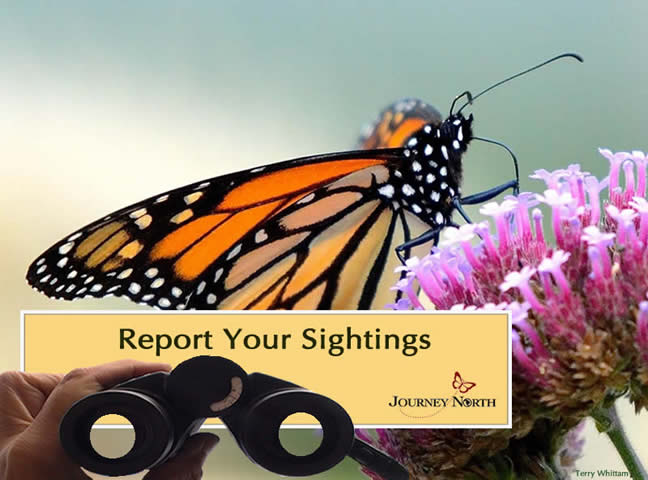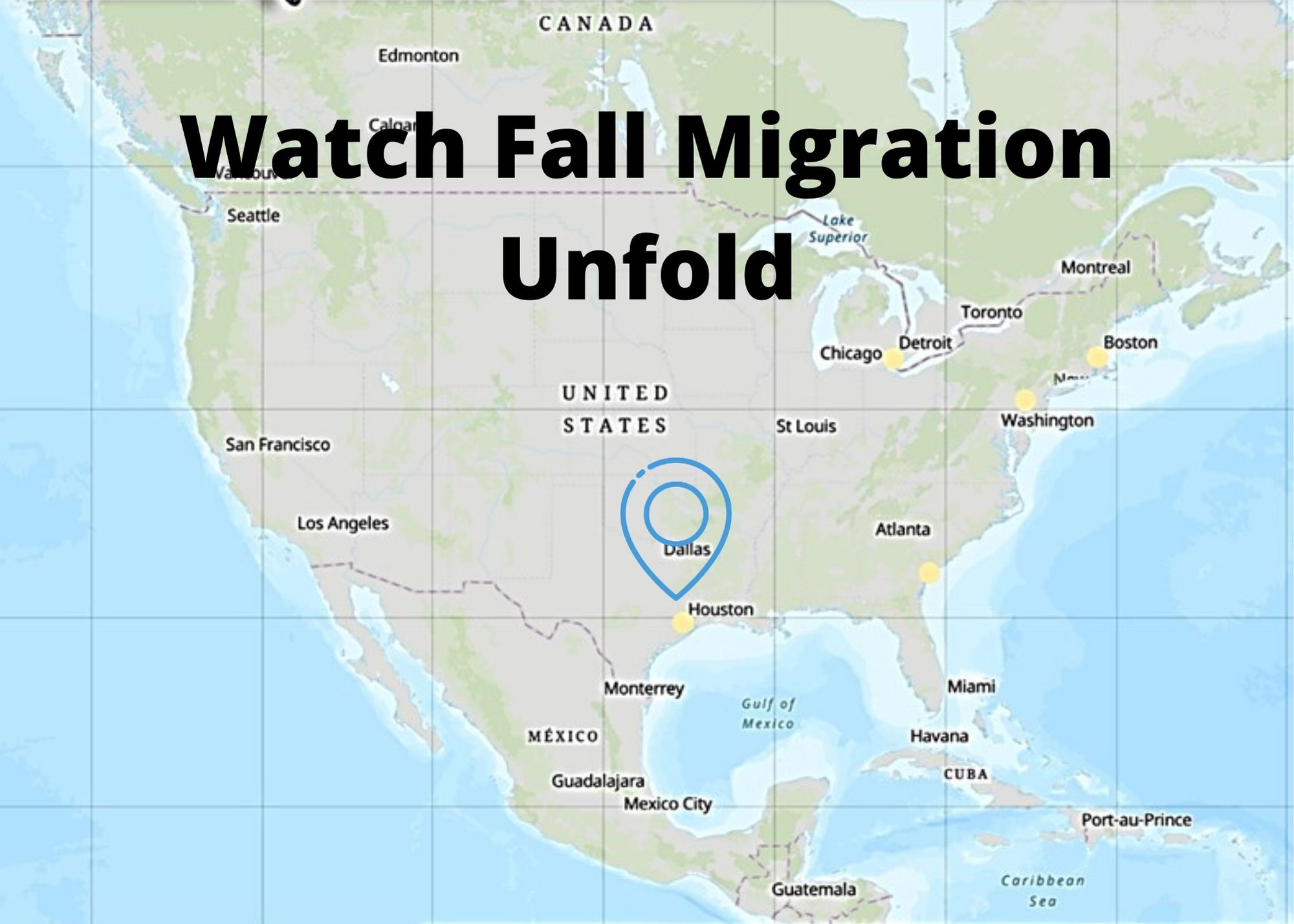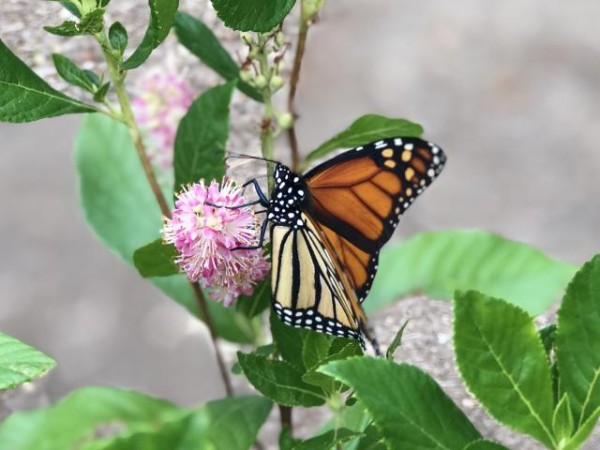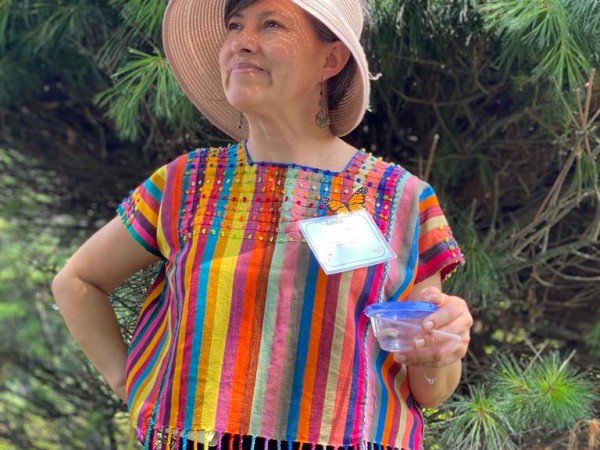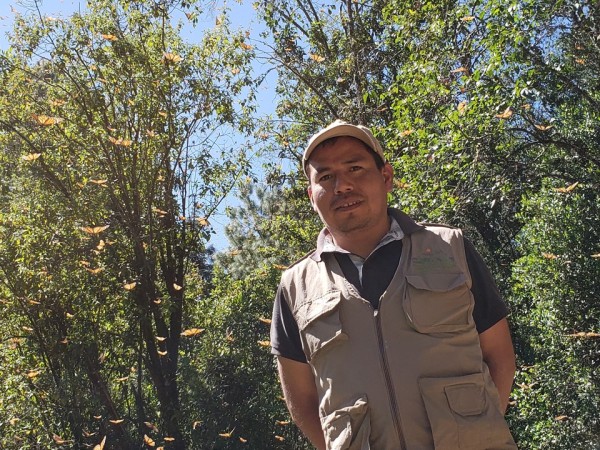Merging and Relocating
Estela Romero and Pato Moreno share news from monarch sanctuaries in Mexico. Plus, a special invitation to report winter monarch sightings in the Southeastern U.S. And next week, Gail Morris provides an update on monarch overwintering sites in California.
Letter from Estela Romero: As Winter Begins, Monarchs Relocate Again
At Sierra Chincua and El Rosario Sanctuaries, Estela Romero shares news of good weather as winter begins and gives an update on the monarch colonies. Estela writes, "It has been a whole month since the monarch butterflies arrived here in Mexico. The weather has been perfect, sunny days with moderately cold nights . . . In the Sierra Chincua Sanctuary, the colony seems to have expanded several hundred meters downstream towards El Tepozán . . . [In El Rosario Sanctuary] the local guides speak of three colonies: A smaller portion still at the site Los Orcones where they originally arrived, a second colony at Los Letreros for visitors, and a third colony in Las Balsitas reserved for research."
Read more of Estela Romero's Letter: As Winter Begins, Monarchs Relocate Again (English version)»
Letter from Pato Moreno: Who Should Benefit from Butterfly Tourism?
At Cerro Pelon Sanctuary, Pato Moreno highlights monarch colonies merging together and shares his thoughts on how the decision to close Cerro Pelon for the season impacts communities. Pato writes, "Cerro Pelon started off the season with three monarch colonies. On December 3, the colonies in Carditos and Paraje Beteta started merging with the larger roost called El Capulin . . . It makes me sad to see so many felled trees right next to the butterfly colony. We as workers feel really frustrated. But we can’t handle this problem alone: we need support from the authorities, as well as more cooperation between the ejido and indigenous community of Nicolas Romero. And people in both of those communities need other forms of employment"
Read more of Pato Moreno's Letter: Who Should Benefit from Butterfly Tourism? (English version)»
Leer más de la carta de Pato Moreno: ¿Quien debería beneficiarse del turismo? (versión en Español)»
Monitor Overwintering Monarchs in Southeastern U.S.
Journey North is again excited to partner with the Georgia Department of Natural Resources, the University of Georgia, Monarchs Across Georgia, and an increasing number of partners to encourage people to report winter monarch sightings in the Southeastern U.S. from December through March. If you live in the Gulf states of Texas, Louisiana, Mississippi, Alabama, and Florida as well as Georgia, South Carolina and North Carolina, we want to hear from you.
Not all monarchs migrate to Mexico. Some breed throughout the winter in the southeastern U.S., and scattered reports show that other monarchs might overwinter in this region in a non-reproductive state. Researchers and others studying monarchs seek your help to understand this phenomenon.
What to Report
There are three types of observations you can submit to Journey North:
- Monarch Adult Sighted
- Monarch Egg(s) Sighted
- Monarch Larvae Sighted
- Milkweed Sighted
Learn more about What to Report.
Western Monarch Update
The good news continues! Courtesy of the Western Monarch Count, this year’s Western Monarch Thanksgiving Count data indicates more than 200,000 monarchs overwintering in California.
Coming Up
Next week, Estela Romero and Ellen Sharp check in from monarch sanctuaries in Mexico, and Gail Morris provides updates from the Southwest and California.

